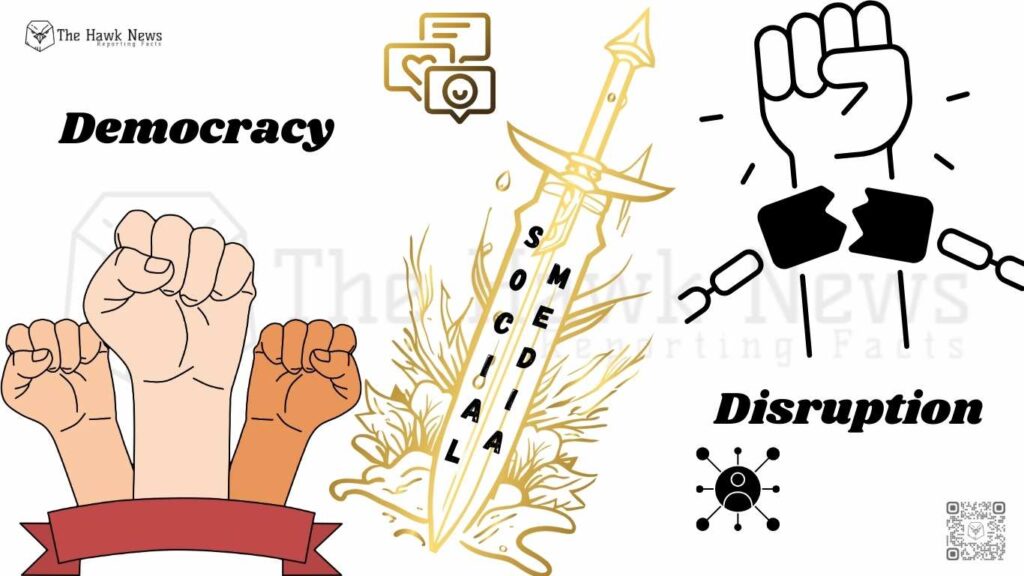
In today’s interconnected world, social media platforms have become integral to modern democracy, revolutionizing how elections are conducted and experienced. From shaping political campaigns to influencing voter behavior, platforms like Facebook, Twitter, Instagram, and TikTok serve as powerful tools for engagement and mobilization.
However, their potential to spread misinformation and polarize societies raises critical concerns about their overall impact.
This article delves into the dual nature of social media in elections, examining its transformative role in democratizing political discourse and the challenges it poses to fair electoral processes.
The Rise of Social Media in Political Campaigns
Social media has become a cornerstone of political campaigning, enabling candidates to reach millions of voters directly. Traditional campaign strategies such as televised debates, rallies, and print advertisements are increasingly supplemented or replaced by digital outreach. Social media offers several advantages:
- Cost-Effective Communication:
Platforms provide an affordable way to connect with diverse audiences, enabling even underfunded campaigns to compete with established political giants. - Targeted Advertising:
Advanced algorithms allow campaigns to deliver tailored messages to specific demographic groups, increasing the likelihood of resonance with voters. - Real-Time Interaction:
Politicians can engage with voters directly through live streams, Q&A sessions, and interactive posts, fostering a sense of accessibility and transparency. - Grassroots Mobilization:
Social media amplifies grassroots movements, giving voice to marginalized groups and enabling the organization of protests, fundraisers, and awareness campaigns.
Shaping Voter Behavior
Social media has dramatically altered how voters access and process information. Platforms serve as primary news sources for many, often replacing traditional media outlets. This shift has several implications:
- Increased Political Awareness:
The constant flow of political content keeps voters informed about candidates, policies, and current events, potentially enhancing civic engagement. - Echo Chambers and Confirmation Bias:
Algorithms designed to maximize user engagement often create echo chambers, where users are exposed primarily to information that aligns with their existing beliefs. This can reinforce biases and deepen ideological divides. - Influence of Viral Content:
Memes, videos, and hashtags can sway public opinion by framing complex political issues in simple, emotionally charged narratives. - Youth Engagement:
Platforms like TikTok and Instagram have successfully engaged younger voters, using creative content to make politics more relatable and accessible to a tech-savvy generation.
The Dark Side: Misinformation and Polarization
While social media has democratized access to information, it has also become a breeding ground for misinformation and divisive content. The challenges include:
- Fake News:
The rapid spread of false or misleading information undermines trust in political systems and institutions. Fabricated stories can go viral, influencing voter perceptions and decisions. - Manipulative Campaigns:
Tactics such as deepfakes, bots, and coordinated misinformation campaigns are used to discredit opponents or promote specific agendas, eroding the integrity of elections. - Foreign Interference:
Social media platforms have been exploited by foreign actors to influence elections in other countries, as seen in investigations of interference in the 2016 U.S. presidential election. - Polarization and Division:
Content that triggers outrage and emotional reactions tends to perform better on social media, exacerbating political polarization and reducing the likelihood of constructive dialogue.
Case Studies of Social Media’s Impact
- The Arab Spring (2010–2012):
Social media played a pivotal role in mobilizing protests and disseminating information during the Arab Spring. Platforms like Twitter and Facebook empowered citizens to challenge oppressive regimes, highlighting social media’s potential as a tool for democratic change. - 2016 U.S. Presidential Election:
The election demonstrated both the power and pitfalls of social media. While candidates used platforms to connect with voters, widespread misinformation and alleged foreign interference raised concerns about the role of technology in undermining democratic processes. - India’s 2019 General Election:
WhatsApp emerged as a significant political tool, with parties using it to distribute campaign materials and communicate with voters. However, the platform also faced criticism for being a conduit for fake news and inflammatory content.
Addressing the Challenges
To mitigate the negative effects of social media on elections, stakeholders must adopt a multi-pronged approach:
- Platform Accountability:
Social media companies must take greater responsibility for moderating content, identifying fake news, and preventing the misuse of their platforms. Transparency in advertising and algorithmic decisions is essential. - Media Literacy Campaigns:
Educating the public about identifying credible information and avoiding misinformation can empower voters to make informed decisions. - Regulatory Oversight:
Governments and electoral bodies should establish regulations to prevent the misuse of social media during elections, balancing free speech with the need for accountability. - Collaboration with Fact-Checkers:
Platforms can partner with independent fact-checking organizations to verify information and reduce the spread of false content. - Ethical Campaign Practices:
Political parties and candidates must commit to ethical use of social media, refraining from manipulative tactics and prioritizing truthfulness in their messaging.
The Future of Social Media in Politics
As technology evolves, the role of social media in elections will continue to expand. Innovations such as artificial intelligence, augmented reality, and the metaverse may create new opportunities and challenges for political engagement. While these advancements promise to enhance connectivity and interactivity, they also underscore the need for vigilance in ensuring ethical and equitable use of technology.
Social media’s influence on modern elections is undeniable. It has the power to empower voters, amplify diverse voices, and foster democratic participation. However, its potential to spread misinformation and deepen divisions highlights the urgency of addressing its shortcomings.
Conclusion
Social media stands at the crossroads of democracy and disruption. It offers unprecedented opportunities for engagement and empowerment while posing significant risks to the integrity of electoral processes. As societies grapple with these dual realities, the future of digital democracy will depend on the collective efforts of governments, platforms, and citizens to harness the positive potential of social media while safeguarding against its dangers.
By striking the right balance, social media can become a force for good, bridging divides and strengthening the democratic fabric of nations around the world.